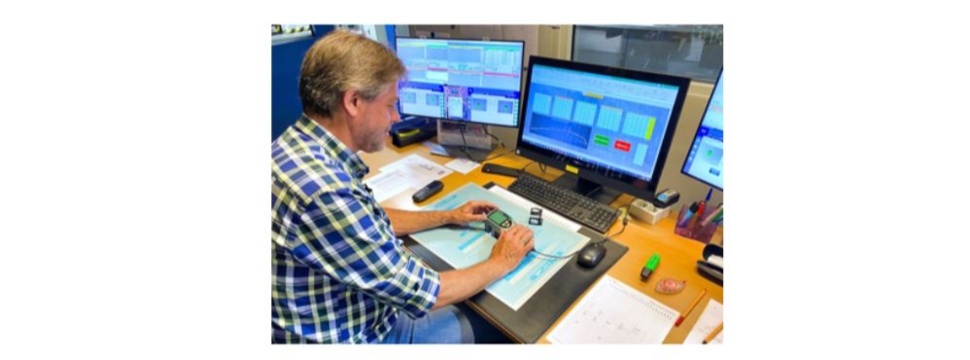Axel Springer Offsetdruckerei Ahrensburg exploits the KODAK LIBRA VP2 Digital Plate’s potential to the full
News General news
The new KODAK LIBRA VP2 Digital Plate offers significant improvements over Kodak’s previous generation of violet plates with faster imaging speeds, higher durability on press, and a low environmental impact. Developed for newspaper printing, the LIBRA VP2 Plate has been doing a great job for some time now at the Axel Springer Group’s offset printing plant in Ahrensburg, Germany. Ahrensburg is one of the media and technology company’s three newspaper production sites in Germany together with the printing houses in Essen-Kettwig and Spandau (Berlin).

Offsetdruckerei Ahrensburg operates seven days a week in two shifts. Production takes place on six 48-page newspaper web presses designed for Nordic format. Apart from the Axel Springer Group’s own newspaper titles like BILD, BILD am Sonntag, DIE WELT and WELT AM SONNTAG, the portfolio also includes external contracts such as Hamburger Abendblatt and Süddeutsche Zeitung.
In line with the general trend in the newspaper industry, the Ahrensburg printing plant has experienced declining circulations of its various newspaper editions over the last few years. As a result, the longest print run is in the region of 150,000 impressions – a figure that is well below the built-in durability of modern newspaper plates. “The situation today is that a plate’s ability to run clean, fast, and efficiently with only a minimum of startup waste – plus consistent, high print quality, of course – is what matters most,” explains Dirk Gaulke of Print Production Management, who is not just in charge of platemaking but also responsible for work materials and quality assurance. Yet these weren’t the only properties of the LIBRA VP2 Plate that persuaded the Offsetdruckerei Ahrensburg management to become a Kodak plate customer at the end of the trial phase in summer 2020.
A welcome alternative
The Kodak violet plate replaced a product from another manufacturer. However, the newspaper printer pursues a ‘two supplier’ strategy with all key consumables, which is why Gaulke comments that “The biggest benefit from our point of view is that in spite of us using different plate products, we haven’t so far noticed any variations in terms of either on-press behavior or quality capabilities. We have to say that the LIBRA VP2 Plate lives up to our expectations in every respect.”
The plates are made on four violet platesetters with downstream clean-out units. Each of these CTP lines has a capacity of 280 plates in the relatively large Nordic format (broadsheet format: 396 x 579 mm). A single CTP line was changed over to imaging and processing the LIBRA VP2 Plate to begin with. “The transition was totally smooth. All we did was switch to the KODAK COF-2 Plate Solution in the clean-out unit and image the LIBRA VP2 Plate using our standard test chart, to enable us to adjust the imager settings,” Gaulke reports. “We didn’t even have much call for support afterwards. A Kodak technician came here to check performance, but there was nothing that needed readjusting in either imaging or processing.”
The company uses Kodak’s easy chem setup, which saves water and chemistry by removing the prewash and final rinsing and gumming steps during plate processing. When asked about the bath life of the plate solution, Gaulke replies, “We have fixed maintenance intervals for all of our clean-out units, and we always exchange the chemistry after 3500 square meters or roughly 14,000 plates. It’s no big deal cleaning the clean-out unit; we simply rinse it with water, allow a cleaner to circulate, and then rinse it out again – that’s all there is to it!”
LIBRA VP2 is on the rise
Encouraged by the positive experience with the LIBRA VP2, Axel Springer’s Ahrensburg printing plant migrated a second CTP line to the Kodak violet plate in January 2021. Dirk Gaulke sums up the reasons why the LIBRA VP2 Plate is gaining ground as follows: “It wasn’t only that the launch was absolutely smooth; the Kodak plate has also proved to be extremely stable. There have been no problems whatsoever with the product to date. What’s more, we’ve always felt very well looked-after by Kodak.”










